Food Safety for Pregnant Women: Questions Your Clients Ask Before Dining at Your Restaurant/Foodservice Business
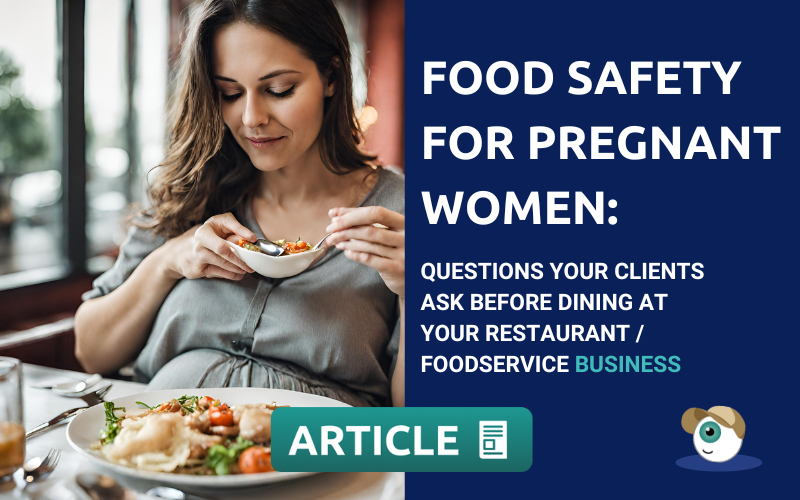
Running a restaurant, a chain of restaurants, or any food service business today requires a profound understanding of the significance of managing kitchen food safety.
Among the diverse demographics needing special attention and care at our tables, pregnant women stand out as a unique group.
During pregnancy, a woman’s immune system is compromised, elevating the risk of foodborne illnesses.
Our restaurants can pose particular risks for pregnant women due to potential cross-contamination and potential challenges in controlling food preparation.
As a restaurant owner, it’s crucial to consider the dietary needs of expecting mothers, ensuring strict adherence to recommended food safety measures, and educating your staff on the importance of hygiene and proper food handling.
In this article, we’ll delve into the questions women may have before, during, and after pregnancy. Additionally, we’ll share tips and practices you should adopt to guarantee their food safety in your restaurant/s or food service business.
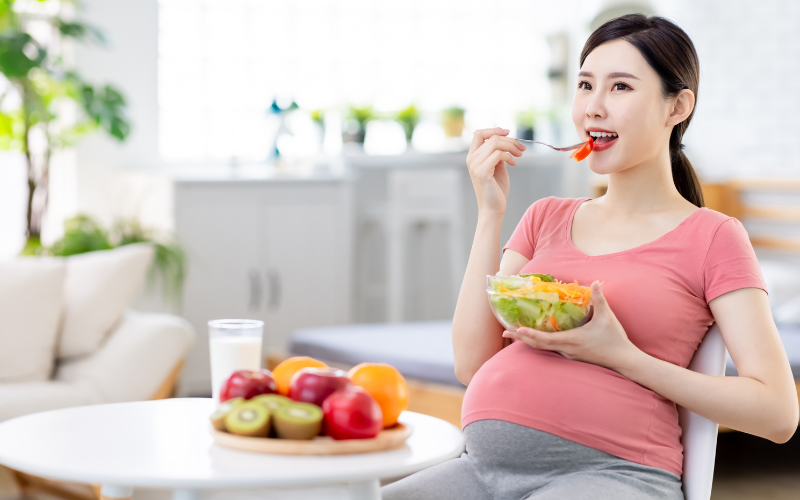
Foods to Avoid during Pregnancy for Preventing Foodborne Illnesses
During pregnancy, it’s crucial to steer clear of certain foods that can heighten the risk of foodborne illnesses. Here are some foods that should be avoided:
- Raw or undercooked meats, such as beef, chicken, fish, or seafood.
- Raw or partially cooked eggs and foods containing raw eggs, like homemade mayonnaise.
- Unpasteurised milk or dairy products, including fresh cheese, feta cheese, goat cheese, and other soft cheeses.
- Pâté and other refrigerated foods that may contain Listeria monocytogenes.
- Fish high in mercury, such as swordfish, shark and king mackerel.
- Unpasteurised or freshly squeezed fruit or vegetable juices.
Additionally, adhering to specific hygiene, storage, and cooking protocols is essential to ensure food safety for pregnant women:
- Properly store foods, keeping raw and cooked items separate and refrigerating them at a safe temperature.
- Maintain clean and sanitised surfaces and kitchen utensils to prevent cross-contamination.
- Ensure all foods are thoroughly cooked before consumption
- Wash fruits and vegetables thoroughly before eating.
- Follow all hygiene protocols to guarantee food safety for pregnant women.
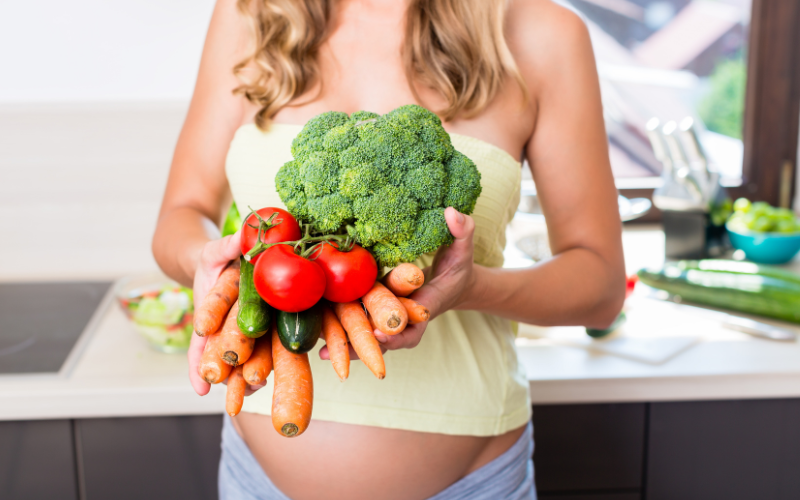
Is it safe to eat Sushi during a woman’s pregnancy?
While sushi can be a healthy and nutritious option, caution should be exercised when consuming sushi during pregnancy due to the risk of contamination by bacteria or parasites that may be present in raw or undercooked fish.
Some types of fish used in sushi may contain high levels of mercury, which can be harmful to fetal development. Therefore, it is recommended to limit the consumption of fish high in mercury, such as swordfish, shark, and king mackerel.
That’s not all.
The raw fish in some types of sushi may be contaminated with parasites like anisakis.
Anisakis is a parasite that can be found in certain fish and seafood, such as salmon, tuna, and swordfish, and it can cause infections in the gastrointestinal tract. In rare cases, it may even trigger a severe allergic reaction.
To avoid the risk of anisakis, it is recommended that:
- Pregnant women avoid eating sushi and other dishes containing raw or undercooked fish. Instead, they can choose cooked sushi options, such as shrimp sushi or vegetable sushi.
- If they decide to eat sushi during pregnancy, it is important to choose fish cooked at high temperatures and ensure they are well-cooked inside.
- Additionally, it should be verified that the products have been frozen at temperatures below -20°C for at least 24 hours before consumption to eliminate any possible contamination.
In any case, if the pregnant woman decides to consume sushi, it is recommended to consult with a healthcare professional.
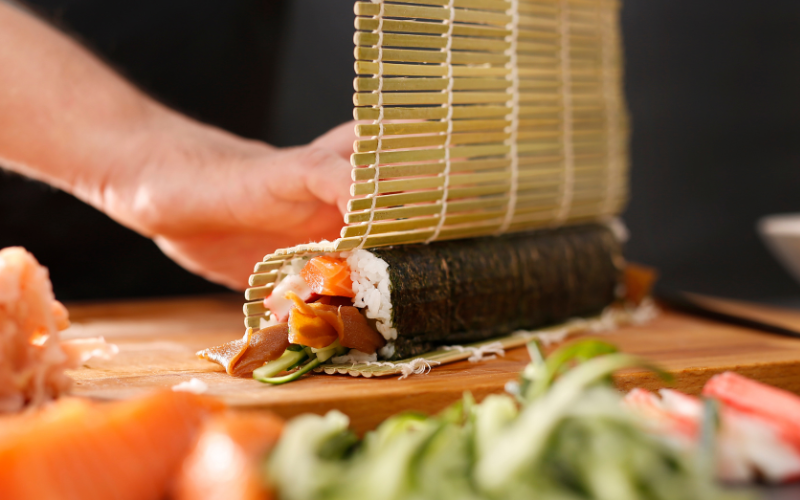
How Safe are Eggs for Pregnant Women?
The main risk with eggs is that they can be contaminated with the salmonella bacteria.
Salmonella is a bacteria that can be present in the eggshell, as well as in the yolk and the egg white. When a raw or undercooked egg is consumed, it can cause a salmonella infection that can be dangerous for the health of both the mother and the fetus.
Therefore, it is recommended to cook eggs until both the yolk and the egg white are firm. Boiled, fried, or poached eggs are safe options to consume during pregnancy.
If you enjoy raw or partially cooked eggs, such as in the preparation of certain desserts, you can use pasteurised eggs.
Pasteurized eggs have been thermally treated to kill any potentially harmful bacteria, making them safe for consumption.
Make sure to read the labels carefully and verify that the eggs are pasteurised before purchasing them.
How can toxoplasmosis be prevented during pregnancy?
Toxoplasmosis is an infection caused by a parasite called Toxoplasma gondii, which can be dangerous for pregnant women and their babies.
Many women infected with toxoplasmosis don’t show symptoms, but some may experience flu-like symptoms such as fever, headache, muscle pain, and fatigue. Additionally, there may be swelling of the lymph nodes.
In severe cases, the infection can lead to eye problems, brain damage, and seizures.
What can be done in a commercial kitchen to ensure food safety for pregnant women and prevent toxoplasmosis?
- Cook meat thoroughly: Cook meat to an internal temperature of at least 71 degrees Celsius to kill any bacteria or parasites that may be present.
- Wash fruits and vegetables thoroughly: Clean fruits and vegetables thoroughly to remove any traces of dirt or bacteria.
- Handwashing: Food handlers should wash their hands with soap and water after handling raw meat, fruits, and vegetables.
What can a pregnant woman do at home to avoid toxoplasmosis?
In addition to the above measures:
- Avoid consuming raw or undercooked meat: Avoid eating raw or undercooked meat, such as beef, pork, or lamb, as they may contain the parasite.
- Drink safe water: Consume safe water, either bottled or treated, to avoid exposure to toxoplasmosis.
- Avoid domestic cat litter boxes: If you have a cat, avoid cleaning its litter box to minimise the risk of exposure to cat feces that may contain the parasite.
- Use gloves when working in the garden: Wear gloves when gardening or handling soil to avoid exposure to cat feces that may contain the parasite.
Is it safe to eat cold cuts and processed meats?
It is recommended to limit or avoid the consumption of cold cuts and processed meats during pregnancy due to the risk of contracting the bacteria Listeria monocytogenes, which can cause a severe infection called listeriosis.
If a pregnant woman becomes infected with Listeria, it can lead to serious complications for both her and the fetus, such as miscarriage, premature birth, low birth weight, and, in severe cases, fetal death. It is advised to thoroughly cook meat before consumption to reduce the risk of infection.
Safer alternatives, such as cooked or canned meats, can also be chosen.
Food Safety for Pregnant Women: Is it Safe to Each Cheese?
It depends on the type of cheese. Some cheeses may contain harmful bacteria that can cause foodborne illnesses.
Soft and unpasteurised cheeses, such as feta, blue cheese, and goat cheese, may contain the bacteria Listeria monocytogenes, which can cause listeriosis—a disease that can be dangerous for the health of both the mother and the fetus during pregnancy.
Therefore, it is recommended to avoid the consumption of soft and unpasteurised cheeses during pregnancy.
Instead, one can opt for pasteurised hard and semi-hard cheeses, such as cheddar, Swiss cheese, and Parmesan, as they are safer due to undergoing a pasteurisation process that kills harmful bacteria.
And what about Manchego cheese?
Manchego cheese can be safe during pregnancy as long as it is made with pasteurised milk and is in good condition.
Pasteurisation is a thermal process that kills harmful bacteria, including Listeria monocytogenes.
If Manchego cheese is made with pasteurised milk and stored properly at a safe temperature, it can be consumed safely during pregnancy. However, it is important to ensure the cheese is of good quality and has been stored appropriately before consumption.
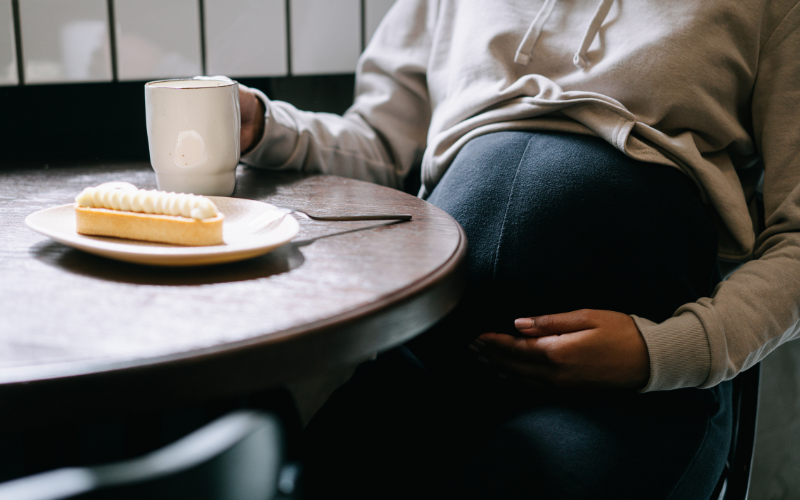
Why should fruits and vegetables be washed more thoroughly before eating them?
It is essential to wash fruits and vegetables more thoroughly than usual before consuming them during pregnancy to eliminate any bacteria, viruses, or parasites they may contain on their surfaces. These microorganisms can cause foodborne illnesses, which can be particularly dangerous for pregnant women and their developing babies.
Additionally, some chemicals such as pesticides and herbicides may also be present on the surface of fruits and vegetables, and proper washing can reduce exposure to these chemicals.
It is recommended to wash fruits and vegetables under running water before consumption, gently rubbing them with hands or a soft brush to remove any dirt or residue on the surface.
It is also important to ensure that utensils and surfaces used for cutting and preparing fruits and vegetables are clean and properly disinfected.
Is it safe to drink alcohol?
No, it is not safe to drink alcohol during pregnancy.
Alcohol can easily pass from the mother to the fetus through the placenta and can have negative effects on the development of the fetus’s brain and other organs, causing a disorder known as Fetal Alcohol Syndrome (FAS).
FAS can lead to a wide range of issues, from intellectual disability and developmental delay to behavioral and mental health problems. Even consuming moderate amounts of alcohol during pregnancy can increase the risk of miscarriage, fetal death, premature birth, and low birth weight.
Numerous studies have shown that alcohol consumption during pregnancy can be dangerous for the fetus and increase the risk of complications in pregnancy and child development.
For example, a study published in the journal Pediatrics found that even moderate alcohol consumption during pregnancy is associated with a higher risk of behavioral and cognitive problems in children.
Another study published in the journal Obstetrics & Gynecology found that women who drink alcohol during pregnancy have a higher risk of premature birth.
Furthermore, the American Academy of Pediatrics, the World Health Organization (WHO), and other health organizations have issued clear recommendations that alcohol should be completely avoided during pregnancy due to potential risks to the fetus.
Is it safe to consume caffeine during pregnancy?
The consumption of caffeine during pregnancy is a debated topic in the medical community.
It is recommended that pregnant women limit their caffeine intake to 200 mg per day, which is equivalent to approximately a 12-ounce cup of coffee.
Excessive caffeine intake can increase the risk of miscarriage, premature birth, low birth weight, and other pregnancy complications.
Additionally, caffeine can pass through the placenta to the fetus and affect its heart rate and sleep pattern.
Therefore, it is essential for pregnant women to consult with their doctor about the safe amount of caffeine they can consume during pregnancy.
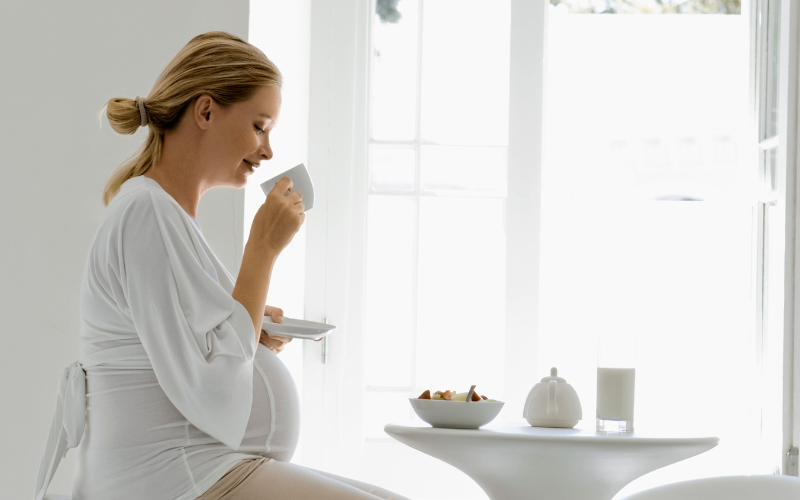
How can Andy help ensure food safety for pregnant women in your restaurant(s) or foodservice business?
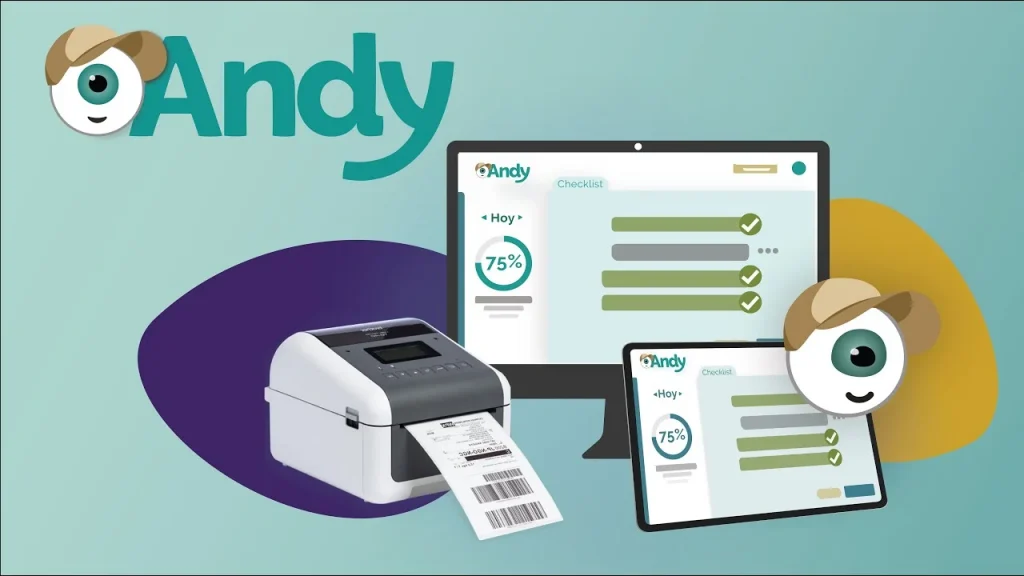
Andy is the leading digital assistant for organised, collective, and independent dining establishments.
Andy assists your teams in complying with cleaning, hygiene, and disinfection protocols by guiding them through task lists, training, communications, and more.
How can Andy help you ensure that pregnant women dining at your table enjoy their experience with complete peace of mind?
With Andy in your kitchen(s), ensuring food safety for pregnant women and other populations with special needs is a simple, easily customisable process, and even easier to use.
Here are some tasks that Andy can help you with to keep your kitchens free of risks for pregnant women and other consumers:
1. Digital HACCP ( Hazard Analysis and Critical Control Points)
By digitisating your HACCP with Andy, your teams can fulfill all mandatory records while automatically activating corrective plans, streamlining operations – from temperature monitoring to implementing corrective actions -, setting acceptable limits, and surveillance frequency.
2. Food Labelling
Our efficient restaurant food safety software also has the ability to label products and ingredients much faster and simpler, ensuring greater food safety in all types of kitchens.
In fact, in this article, we demonstrate that automatic expiration date labelling is at least twice as fast as the cumbersome manual labelling.
3. Incident Management
Andy automates any incidents that occur in a commercial kitchen with simple and effective corrective plans.
Andy has the power to help resolve arising discrepancies and activate the correct action plan to address them in a fraction of the time that kitchen teams typically spend, ideal for ensuring food safety in all types of restaurants.
4. Water Record-keeping
It’s important to record water temperatures at critical control points, such as hot water systems and cooling systems, to ensure they stay within established critical limits.
Maintaining temperatures within established critical limits is essential to prevent the proliferation of bacteria.
With Andy, all water self-checks (temperature, chlorine, pH) are recorded, and in case of deviation, Andy guides workers by reminding them of the necessary corrective measures.
5. Internal Audits
With the integrated audit plan in Andy, you can control participant access, customize scores, and collect all inspections in one place.
In this post we explain how Andy not only facilitates the daily work of kitchen employees but it also significantly eases the work of auditors.
So, if you’re embarking on a new business venture, whether it’s in organised dining, collective dining, food service, hotel groups, etc.,
incorporate Andy into your kitchens and ensure food safety for pregnant women and all your other clients!


